News

Adherence to health guidelines at work places: President says heads are accountable
The COVID-19 virus is prone to spread among groups until adequate and satisfactory containment. Kandakadu Rehabilitation Center is an unfortunate example. Therefore the President emphasizes the necessity of continuing easily accessible tests related to clusters of people immediately.
The President made these remarks during a discussion with the Presidential Task Force to curb COVID-19 at the Presidential Secretariat yesterday (14). It was reported that the Task Force had not met for more than a month prior to yesterday's discussion.
Although day to day life has returned to normalcy, precautionary measures should not be relaxed as the risk of COVID-19 spread remains high.
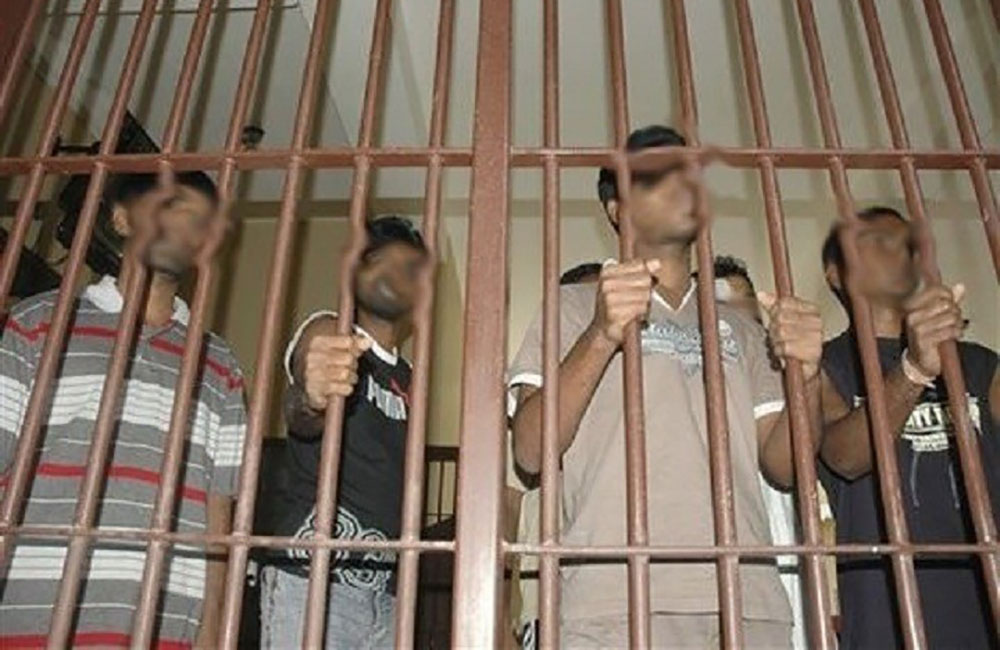
Tamil political prisoners raise security concerns
Twenty political prisoners from the Magazine prison have been transferred to Anuradhapura against their will, says the National Movement for the Release of Political Prisoners (NMRPP).
Prison officials have claimed that the move helps prisoners as they will be detained closer to their families. However, NMRPP maintains that the Anuradhapura prison and its surroundings are not safe for Tamil prisoners.
“Although such an opportunity exists, it has already been proven that the Anuradhapura prison and its surroundings are not safe,” Co Convener of NMRPP Rev Marimuththu Sathivel told journalists in Colombo.
In March, two inmates of the Anuradhapura prison were shot dead when staged a protest demanding release from the overcrowded prison following the hospitalisation of a detainee with Covid-19 symptoms.
Police later confirmed that prison guards opened fire to “control the protest”.
NMRPP accuses authorities of having a sinister motive in removing Tamil political prisoners against their will.
“The government views the association of Tamil political prisoners as a problem,” said Father Sathivel.
“The prisoners believe that they are been scattered to different places in order to destroy their political beliefs. They further believe that mixing them with other prisoners, not only destroys them politically, but also poses a threat to their lives.”
While the government has a responsibility of protecting the lives, Tamil politicians “who remember political prisoners only during elections” also have a duty to stand for their rights, added Fr Sathivel.
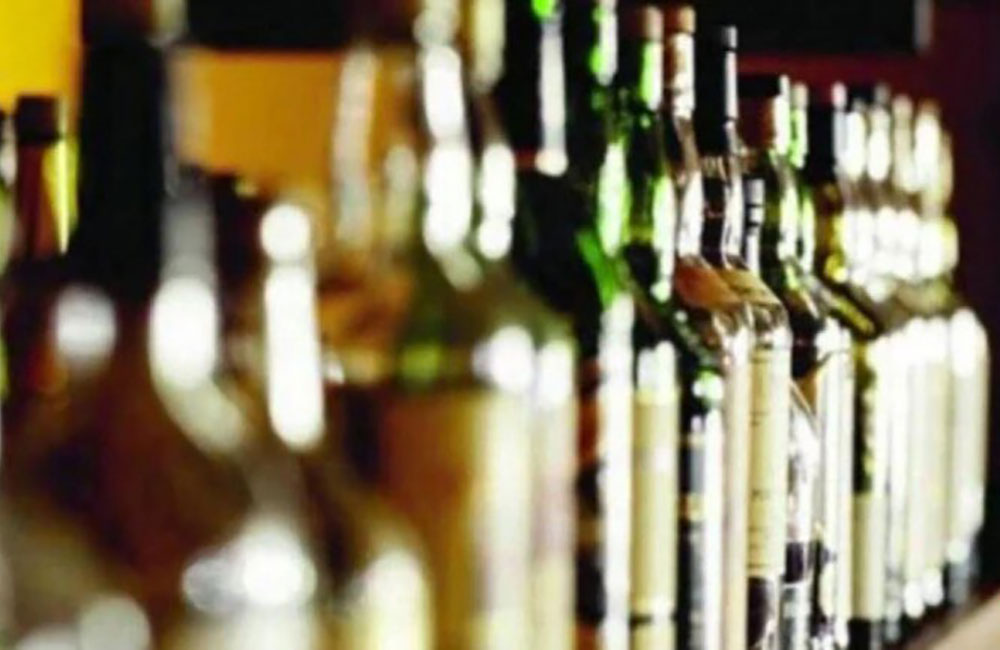
Sri Lanka liquor manufacturers cry foul over ethanol procurement directive
Sri Lanka Customs and the Department of Import and Export Control have been facilitating the release of many goods which had arrived before the temporary ban imposed following the COVID-19 pandemic, to save foreign exchange outflow and promote local industries.
However, the department is delaying the release of the majority of ethanol containers along with 200,000 other containers citing procedural and legal matters despite the Finance Ministry directive issued under the instructions of President Gotabaya Rajapaksa.
It has already permitted the clearing of 31 containers out of 72 imported by a leading liquor manufacturer, the Distilleries Company of Sri Lanka (DCSL) as these containers were duly licensed and approved by the authorities mid to late last year, and long before the onset of the COVID-19 pandemic.
Customs Department has forwarded some documents of the company to its legal division for perusal although its licence was to last till March 2020 and the company hadn’t opened fresh LCs or ordered new shipments following the ban, informed sources revealed.
DCSL has been prevented from purchasing ethanol from a local private company, due to the Government’s recent attempts to create a state monopoly in ethanol production.
After the ban on ethanol imports since 1 January this year, manufacturers were purchasing ethanol from Royal Casks Distilleries (Pvt.) Ltd., the only distillery that produces ethanol using maize up to the international quality standard of imported ethanol, industry sources noted.
In a surprise move, the Department of Excise has rejected a request from manufacturers to purchase over 347,000 litres of ethanol from Royal Casks.
In a letter, Commissioner General of Excise A. Bodaragama has directed the manufacturers to purchase ethanol either from Pelwatte Sugar Distilleries (Pvt.) Ltd. or Lanka Sugar Company Ltd. – Sevanagala, two state-owned ethanol distilleries.
This move by the Department of Excise was aimed at boosting the revenue of loss making Pelwatte Sugar Distilleries (Pvt.) Ltd. or Lanka Sugar Company Ltd. – Sevanagala, two state-owned ethanol distilleries creating a state monopoly, liquor companies alleged.
This directive of the Excise Department infringes with the company’s rights and excise regulations, a senior executive of a leading liquor company said.
No provisions in Excise regulations force a manufacturer to buy necessary raw materials from distilleries that are suggested or directed by the Department; it instead provides a manufacturer the choice to decide, he added.
According to official data, production capacity of five local ethanol producers is only 42 percent of the local requirement and the estimated maximum production of Pelwatte, Sevanagala, Royal cask, Hingurana and Galoya plantations is in the region of 12 million liters per annum.
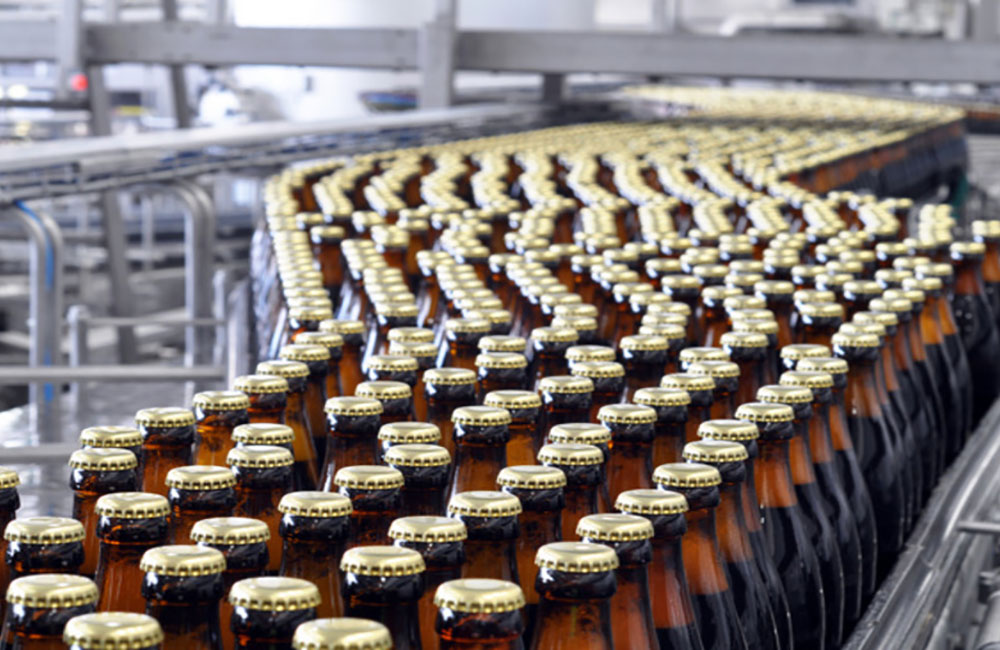
Dark truth about Sri Lanka's ethanol ban revealed!
The ban on ethanol imports and the move of creating a state monopoly in local ethanol supply was aimed at flushing out existing liquor manufacturers from the arena and promoting new comers with the backing of ruling party bigwigs, industry sources claimed.
Further the delay in the clearance of ethanol tankers imported by local manufacturers placing orders and opening LC’s before the government’s ban on rectified spirit has crippled the local liquor manufactures.
While the Sri Lanka Customs claims the importation of ethanol has been temporarily banned, it has been revealed that a gazette notification in this regard has not been issued yet and the ban is being implemented on a letter sent by the Ministry of Finance on January 2 official documents revealed. 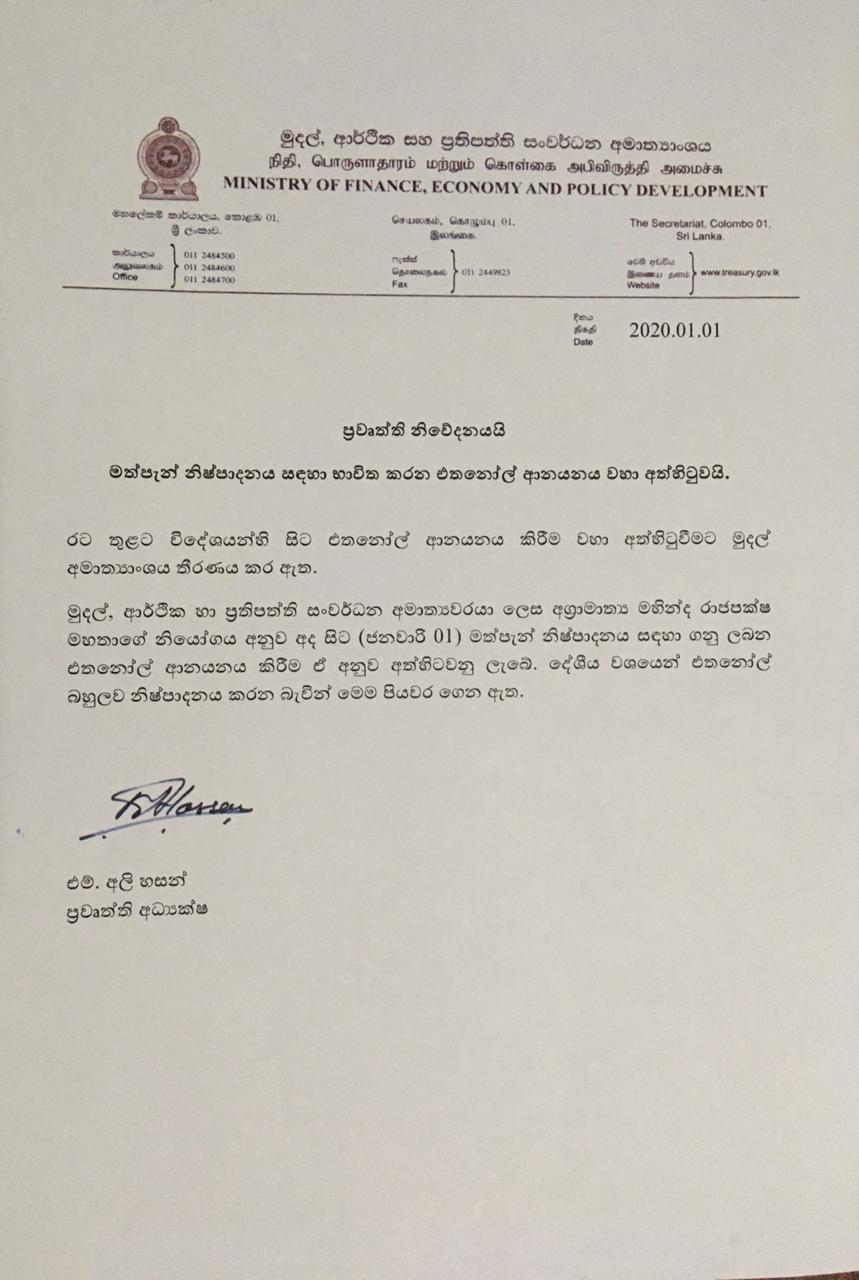
In a letter, Commissioner General of Excise A. Bodaragama has directed the manufacturers to purchase ethanol either from Pelwatte Sugar Distilleries (Pvt.) Ltd. or Lanka Sugar Company Ltd. – Sevanagala, two state-owned ethanol distilleries.
This move by the Department of Excise has bewildered the manufacturers as the restriction was neither officially announced nor pre-communicated, and is also being particularly targeted at them.
Earlier, alcohol manufacturers have been allowed to purchase from any local ethanol distillery, and If the Government sticks to the original ban, the liquor industry would cut their production, which would result in a significant loss of revenue to the Government, manufacturers added.
Manufacturers were purchasing ethanol from Royal Casks Distilleries (Pvt.) Ltd., the only distillery that produces ethanol using maize as raw material with international quality.
The Department of Excise has turned down a request from a leading manufacturer to purchase over 347,000 litres of ethanol from Royal Casks, they said.
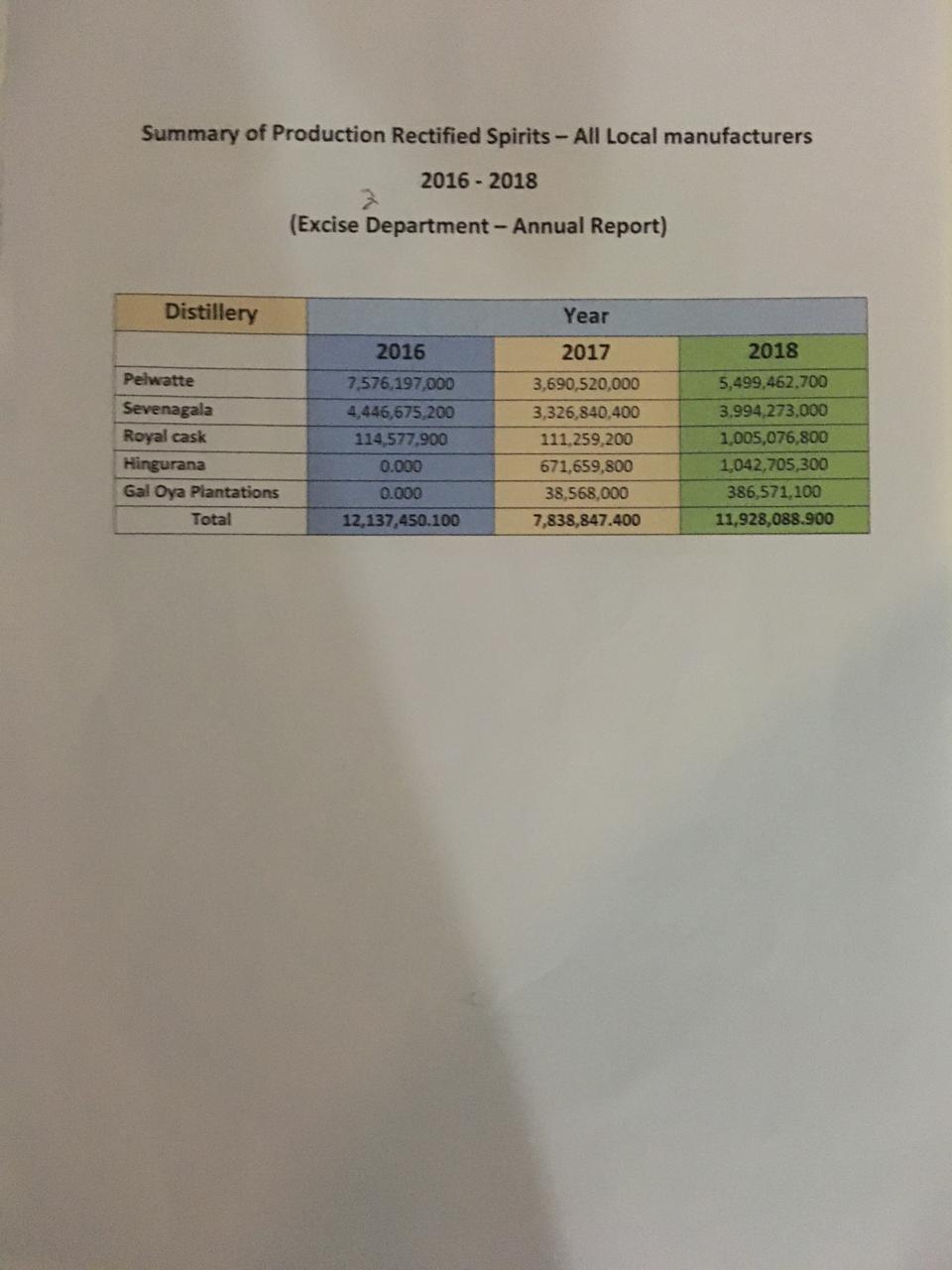
Galoya Plantation (Pvt) Ltd. is reported to have been stock piling ethanol with a plan of opening a liquor bottling plant to enter into liquor production in a big way, informed sources said.
This company is managed as a Public-Private Partnership (PPP) between the Government and a consortium led by Brown & Company PLC and LOLC PLC.
According to the Ministry of Finance, the excise revenue target was Rs. 130 billion, out of which Rs. 68 billion was expected from the taxation of ethanol imports. During the financial year 2018/2019, Distilleries Company of Sri Lanka (DCSL) paid Rs. 58 billion in taxes, and Rs. 64 billion in taxes a year ago.
At least 22 licensed importers have been affected by the ban on ethanol imports and a very few of their containers (1 or 2) including 41 tankers imported by Distilleries Company of Sri Lanka (DCSL) are still to be cleared by Customs due to strict procedure of the department, several importers said.
They pointed out that the directive of the President to allow clearance of the quantity of ethanol shipments arranged before the ban will fulfill the local requirement temporarily but a shortage of ethanol based products and the loss of tax revenue will be resulted in the long run.
However, with the absence of competition due to ban on ethanol imports, the ethanol produced in Sri Lanka is alleged to be of lower quality, according to several alcohol manufacturers in the country.
They noted that using local ethanol in their production process could affect the taste and result in the increase of harmful chemicals in their end product.
“Therefore the restriction on the import of ethanol needs to be restored at an early date, as otherwise the production of illegal liquor in the illicit market would flourish, resulting in harmful health effects on consumers, ”they added.
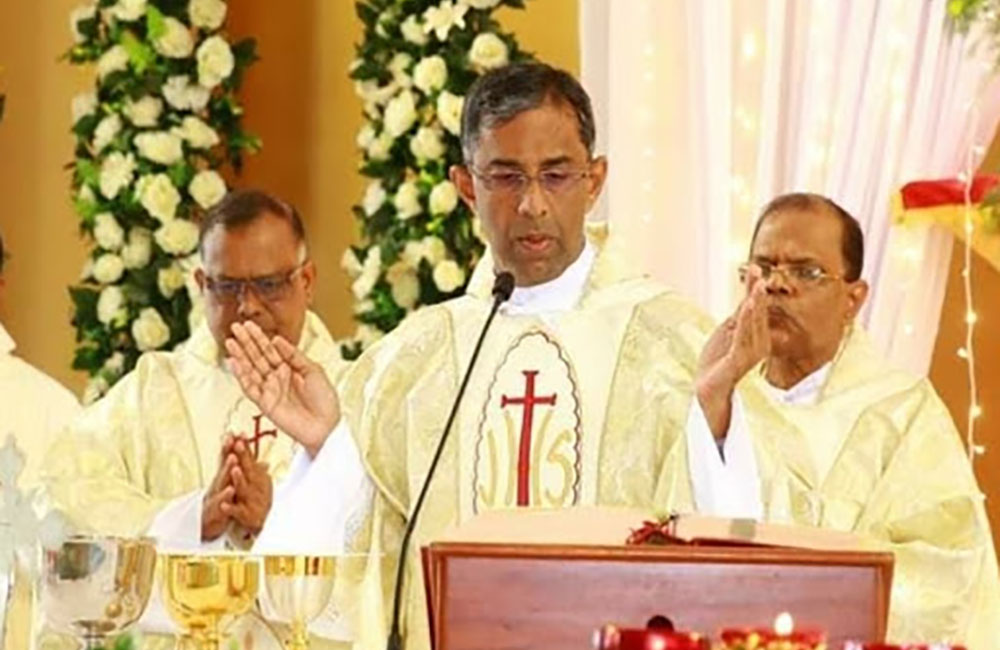
Pope Francis appoints new Auxiliary Bishop
Father Anton Ranjith Pillainayagam, a priest of the archdiocese, is the third auxiliary bishop of the metropolitan archdiocese.
The 53-year old priest has been appointed the third auxiliary bishop of the archdiocese, which is headed by Cardinal Malcolm Ranjith. Father Pillainayagam was born on September 23, 1966, in Jaffna.
Father Pillainayagam is currently the vice-rector of St. Joseph's College in Colombo and director of the Tamil Theologate. He also served as the Vice-Rector of St. Peter's College from 2012 - 2014.
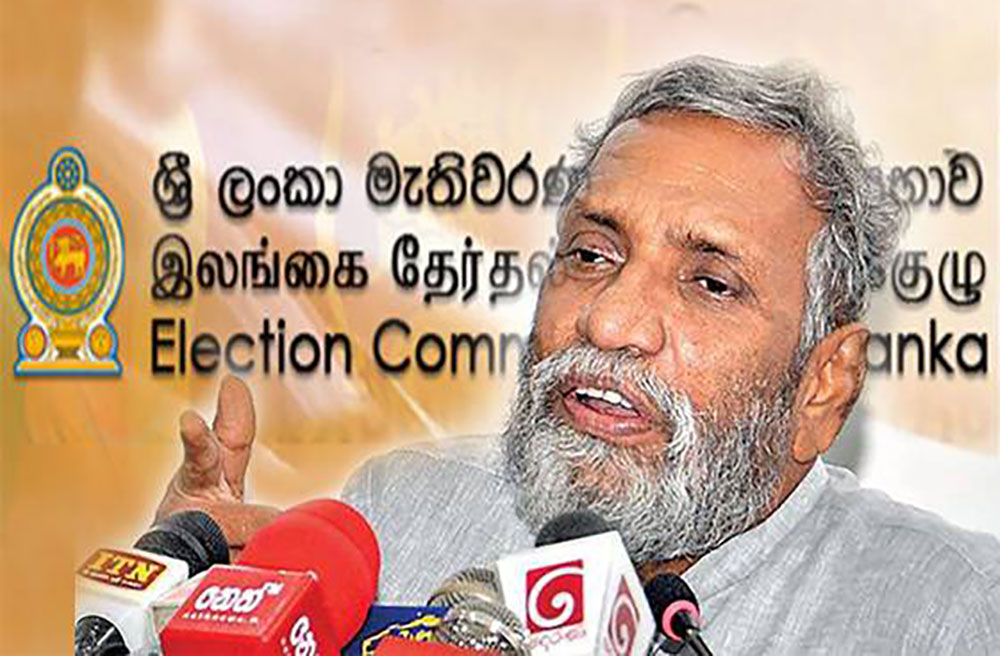
Mahinda Deshapriya concerned over delay in enforcing COVID-19 health guidelines for polls
Mahinda Deshapriya, Chairman of the National Election Commission, said that the health guidelines for conducting the elections were announced on June 2 but they have not been legalised through a gazette notification.
The guidelines have been sent by the health authorities to the Attorney General''s Department, which would give a nod for them to be gazetted.
“What we see now is candidates and their supporters campaigning shoulder to shoulder, they do not keep the required one metre distancing, they do not even wear face masks,” Deshapriya said.
The health guidelines require wearing face masks, frequent hand washing and maintaining one-metre distance. The number of people at poll campaign gatherings has also been reduced to a bare minimum.
The parliamentary elections in the country are scheduled for August 5 and the campaigning has been at a very low scale due to the COVID-19 pandemic compared to previous elections.
President Gotabaya Rajapaksa on March 2 dissolved the Parliament, six months ahead of schedule, and called for snap polls on April 25. However, the election commission in mid-April postponed the elections by nearly two months to June 20 due to the coronavirus outbreak in the island nation.
The commission last month informed the apex court that the polls cannot be held on June 20 because of the coronavirus pandemic and the new date was decided following a unanimous decision reached between the members of the commission.
The election commission held several mock polls to put into practice health guidelines and on Monday extended the poll time by one hour in view of the pandemic.
There are over 16 million eligible voters in the country. The August 5 poll will elect a 225-member Parliament for a five-year term.
Deshapriya''s comments came as Sri Lanka recorded its highest spike for a single day on Friday. As many as 300 cases were reported from a rehabilitation centre for drug addicts from the north central region of the country.
Sri Lanka has reported 2,454 COVID-19 cases with 11 deaths.
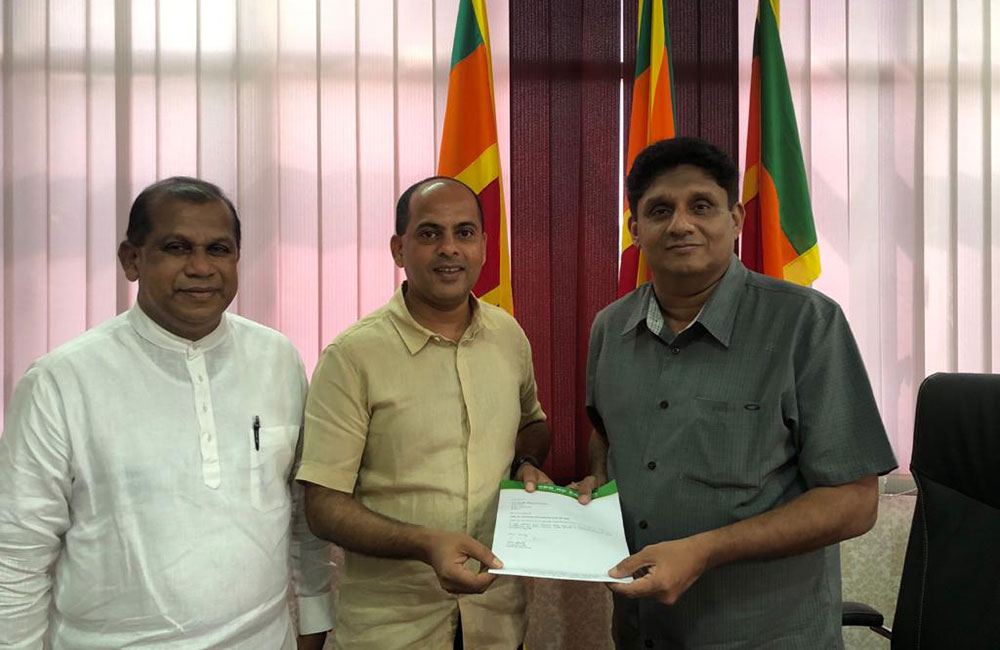
Marikkar appointed as SJB spokesperson!
Accordingly, Marikkar has been tasked with propagating SJB's policies to the masses and to counter opposing views against the party in an organised manner.
A seasoned campaigner with regard to the execution of political campaigns, he has decided to launch an extensive media operation to assure the victory of the 'Telephone' at the upcoming general election.
At a time when Iraj Weeraratne and Nissanka Senadhipathi have been assigned with the execution of the social media campaign on behalf of president Gotabaya Rajapaksa in this general election, it is reported that Marikkar too will pay special attention to social media.
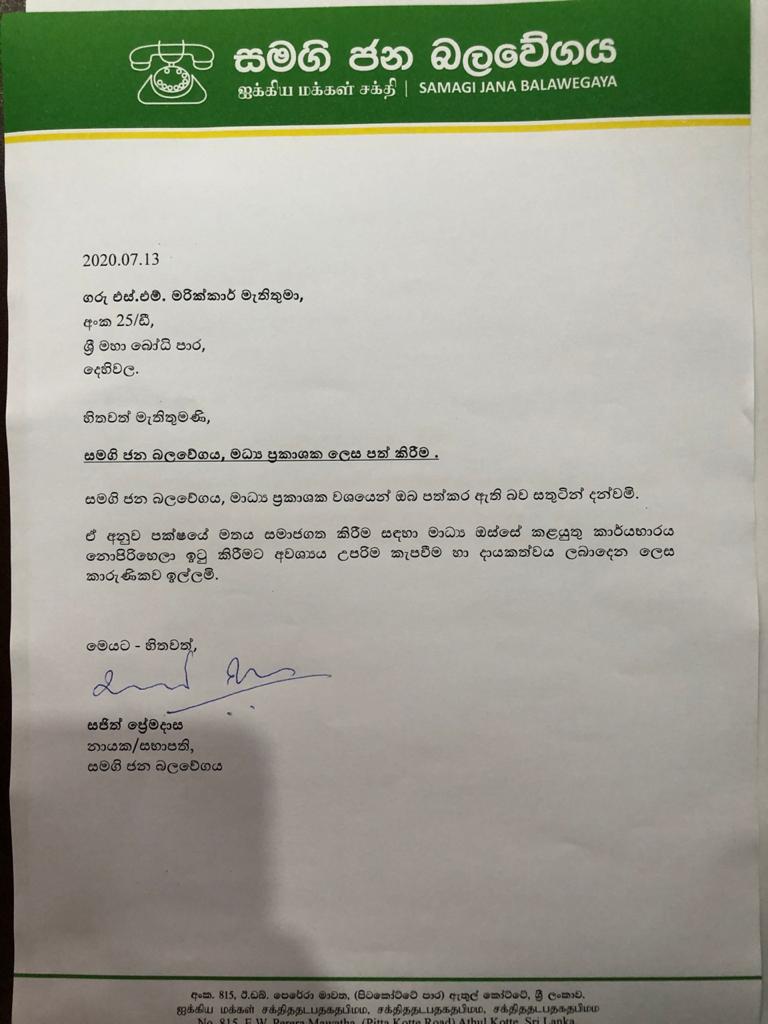

Instigated by China, Sri Lanka could end port deal with India?
Sri Lankan President Gotabaya Rajapaksa recently announced that Colombo will review the port agreement signed between India and Sri Lanka at an estimated cost between $500 to $700 million.
Experts see this move as an effort to distance itself with ‘QUAD’ nations, especially India, which is trying to counter China’s growing geopolitical influence. The “QUAD” nations include the U.S., India, Japan and Australia who currently have turbulent ties with China.
“We heard that there is a lot of pressure from India over this project. But we are not a province of India, we are a sovereign nation and we do not need to dance to their tunes,” said Shyamal Sumanarathna, secretary of the Ports, Commerce Industries and Progressive Workers Union. “Following our strike, the prime minister assured [us] that he will sort this issue out,” he added.
The previous government of Sri Lanka signed a Memorandum of Understanding (MoU) with India and Japan to develop the new East Container Terminal (ECT). According to the terms, Sri Lanka holds 51% stake while India and Japan share the remaining stake.
However, the Trade Unions fear that it will cede the ownership of the ECT to India. They are demanding a guarantee that the project will be fully owned by the Sri Lanka Ports Authority, a government entity. Prime Minister Mahinda Rajapaksa has assured them that there is “no final agreement” yet.
“About two-thirds of Sri Lanka’s international cargo traffic is with India. There are opportunities for win-win cooperation among India, Sri Lanka and Japan in developing the ECT to promote prosperity in our maritime region,” stated a representative of the Indian High Commission in Colombo.
Rajapaksa has formed a five-member committee to review and report on the concerns over the project in 45 days and also to recommend steps ensuring the terminal delivers the maximum benefit for Sri Lanka.
Amid India’s growing tensions with China, Pakistan and Nepal, there are signs that ties with Sri Lanka could also turn sour as Beijing could instigate the island country to terminate a port deal with New Delhi.
Sri Lankan President Gotabaya Rajapaksa recently announced that Colombo will review the port agreement signed between India and Sri Lanka at an estimated cost between $500 to $700 million.
Experts see this move as an effort to distance itself with ‘QUAD’ nations, especially India, which is trying to counter China’s growing geopolitical influence. The “QUAD” nations include the U.S., India, Japan and Australia who currently have turbulent ties with China.
“We heard that there is a lot of pressure from India over this project. But we are not a province of India, we are a sovereign nation and we do not need to dance to their tunes,” said Shyamal Sumanarathna, secretary of the Ports, Commerce Industries and Progressive Workers Union. “Following our strike, the prime minister assured [us] that he will sort this issue out,” he added.
The previous government of Sri Lanka signed a Memorandum of Understanding (MoU) with India and Japan to develop the new East Container Terminal (ECT). According to the terms, Sri Lanka holds 51% stake while India and Japan share the remaining stake.
However, the Trade Unions fear that it will cede the ownership of the ECT to India. They are demanding a guarantee that the project will be fully owned by the Sri Lanka Ports Authority, a government entity. Prime Minister Mahinda Rajapaksa has assured them that there is “no final agreement” yet.
“About two-thirds of Sri Lanka’s international cargo traffic is with India. There are opportunities for win-win cooperation among India, Sri Lanka and Japan in developing the ECT to promote prosperity in our maritime region,” stated a representative of the Indian High Commission in Colombo.
Rajapaksa has formed a five-member committee to review and report on the concerns over the project in 45 days and also to recommend steps ensuring the terminal delivers the maximum benefit for Sri Lanka.
However, it is important to note that Sri Lanka has turned to China several times for bailouts when the country went down on lockdown for two months amid the Covid-19 pandemic.
As reported earlier by EurAsian Times, Sri Lanka had relied heavily on China to construct $1.5 billion port in Hambantota in the country’s south. After the port was operating at a loss and couldn’t generate enough revenue to repay the loan to Beijing, the port was leased to China for 99 years in return for $1.1 billion which eased its position.
Beijing further granted $500 million to Colombo to fight the pandemic to help the looming financial crisis.
Sri Lanka has also requested various foreign governments including India for a postponement of repayment of the debt as the island nation is reeling under major economic crisis. “The matter has progressed and technical level discussions are presently underway,” Spokesperson in the Ministry of External Affairs Anurag Srivastava said.
Rohan Masakorala, a maritime shipping expert and CEO of the Shippers Academy Colombo disputed the trade union’s claim calling them “nationalistic” and politically motivated with views, not in line with the global business strategies.
“South Asia Gateway Terminal has been running for over 20 years with a number of international partners, and similarly the Colombo International Container Terminal has been operating for seven years with a Chinese company,” he said.
Sri Lanka’s government has also recently halted the Japan-funded Colombo Light Railway project and a $480 million Millennium Challenge Corporation grant from the U.S. Harin Fernando, a Member of the Parliament of Sri Lanka, accused the current administration of turning Sri Lanka into a “banana republic” under Chinese rule.
“In 2014, before we toppled the government, this is what we highlighted. But now we see [the Chinese] doing this much more strategically,” he said. He is also of the view that China now has a complete monopoly on Sri Lanka’s development projects and that Sri Lanka is “under debt” of China.
(Eurasian Times)
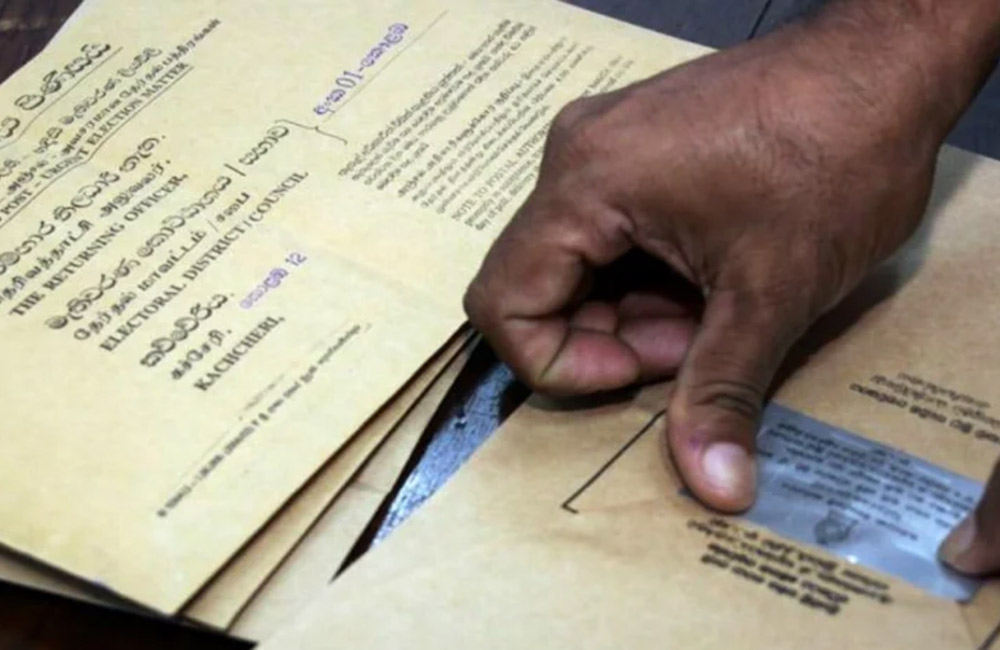
Postal voting begins amid new COVID-19 threat
The voting will go on for 5 days with two days reserved next week for those who fail to cast their vote this week. Over 700,000 officers who will be on election duty on August 5 are eligible to cast their vote.
The election authorities said the voting in the north central town of Rajanganaya was indefinitely postponed due to a COVID-19 threat. According to the health officials, a cluster has been forming in the area since last week with the infections from a drug rehabilitation center at Kandakadu in Polonnaruwa district.
Nearly 500 new infections, including 70 students, were detected from the Kandakadu cluster. Around 600 close contacts of those who tested positive have been sent for quarantine.
With the growing threat from the new cluster, the government shut schools this week, while main election rallies have been cancelled. The schools were only opened last week after the lockdown.
All election rallies of Sri Lankan President Gotabaya Rajapaksa and Prime Minister Mahinda Rajapaksa have been cancelled temporarily, the Sri Lanka People's Party (SLPP) announced on Sunday, following a surge in coronavirus cases.
Although the Elections Commission has said that the election will not be postponed again, a meeting to be held this week will assess the new COVID-19 threat.
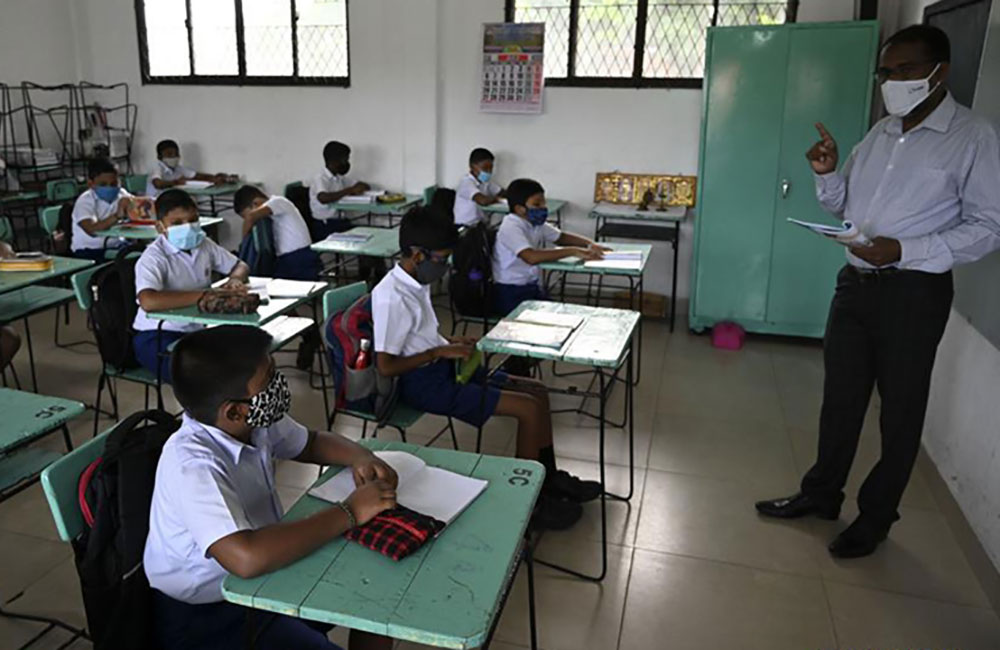
Schools partially re-open under strict health guidelines
According to the Education Ministry, schools re-opened on Monday for grades 13, 11 and 5, leading to nearly 800,000 students returning back to school across the country, reports Xinhua news agency.
Strict health guidelines were followed as students were subjected to temperature checks, frequent washing of hands and wearing face masks.
Chairs and desks were kept one metre apart in each class room and students were informed to speak to each other from a distance.
The Education Ministry said that under the third phase, schools would re-open for grades 10 and 12 students on July 20, and under the fourth stage from July 27, schools would re-open for the rest except for grades 1 and 2.
All sports activities and tests however have been cancelled until further notice, the Ministry said.
Sri Lanka has so far reported 2,078 positive COVID-19 patients but has seen an over 90 per cent recovery rate with 1,917 patients out of the total detected been successfully treated and discharged.
Active patients are now down to 161, official statistics from the Health Ministry showed.
The deaths stood at 11.
Capital Colombo resumed economic operations at the end of May after being shut for nearly two months to prevent a further spread of the virus, and since then the country has seen the gradual re-opening of several sectors.
–IANS
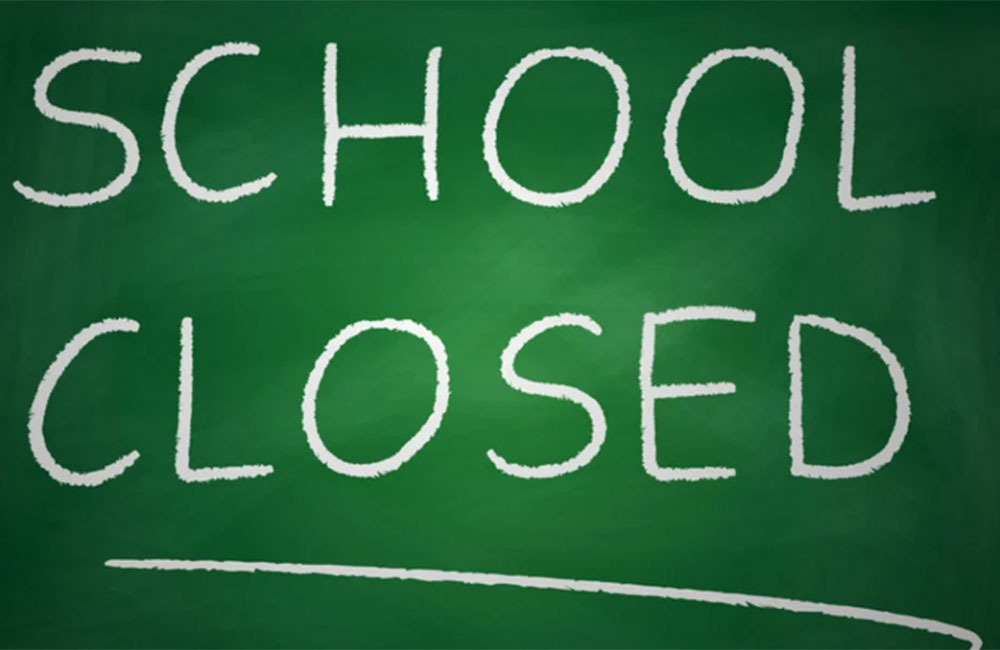
Schools shut down till July 17 amid rising threat of COVID-19
The decision to shut schools was taken following discussions with Education Minister Dullas Alahapperuma and education officials islandwide after nearly 400 patients were detected with the COVID-19 virus from the rehabilitation center within the past three days, the Education Ministry said in a statement.
"Considering the guidelines of the health and safety sectors, it has been decided to give one week leave to all schools to monitor the adverse conditions that may occur in the school sector," the statement said.
Sri Lankan schools had been shut from March but re-opened two weeks ago after authorities said they had contained the spread of the virus. However with a new cluster reported, the government said it had decided to shut schools again as a precautionary measure.
The number of positive COVID-19 patients reached 2,612 on Sunday evening after over 94 people tested positive during the day. A majority of the patients were detected from the Kandakadu Rehabilitation Center while some patients were among those who were repatriated from overseas recently.
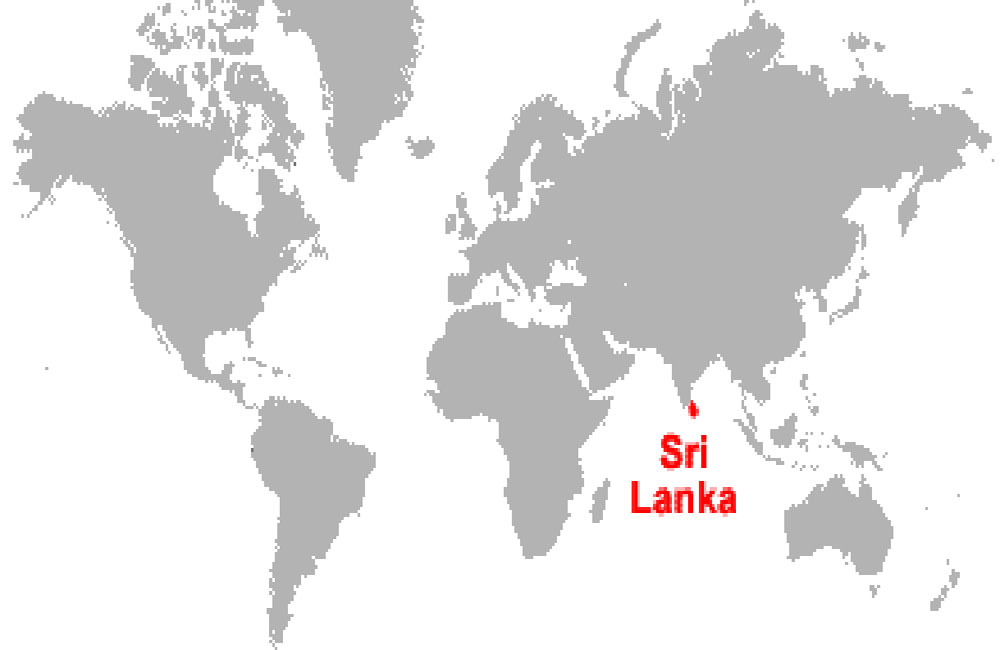
Sri Lanka among countries listed as 'unsafe to travel'
The British Foreign and Commonwealth Office (FCO) updated its global advisory yesterday (Saturday) against ‘all but essential’ travel, exempting destinations that no longer pose an unacceptably high risk for British travellers.
The countries exempted from the travel advisory included cities in Europe, Americas, Asia Pacific, Africa and Antarctica.
“These exemptions came into effect on 4 July. All our advice will remain under constant review to take into account the latest situation in each country. These countries have been assessed as no longer presenting an unacceptably high risk to British people travelling abroad. Foreign & Commonwealth Office (FCO) travel advice is based on risks to British nationals, including in-country public health assessments,” the FCO said.
Australia, South Korea, Malaysia, New Zealand, Singapore, France, Greece, Italy and Germany are among the countries seen as safe for Brits to travel to.
On Friday, the United Kingdom announced that tourists from over 50 countries and territories will be able to visit the UK from July 10, without facing a mandatory 14-day quarantine period upon arrival.
The list, however, did not include Sri Lanka which has announced that the coronavirus is under control and not spreading among communities.
Page 246 of 510